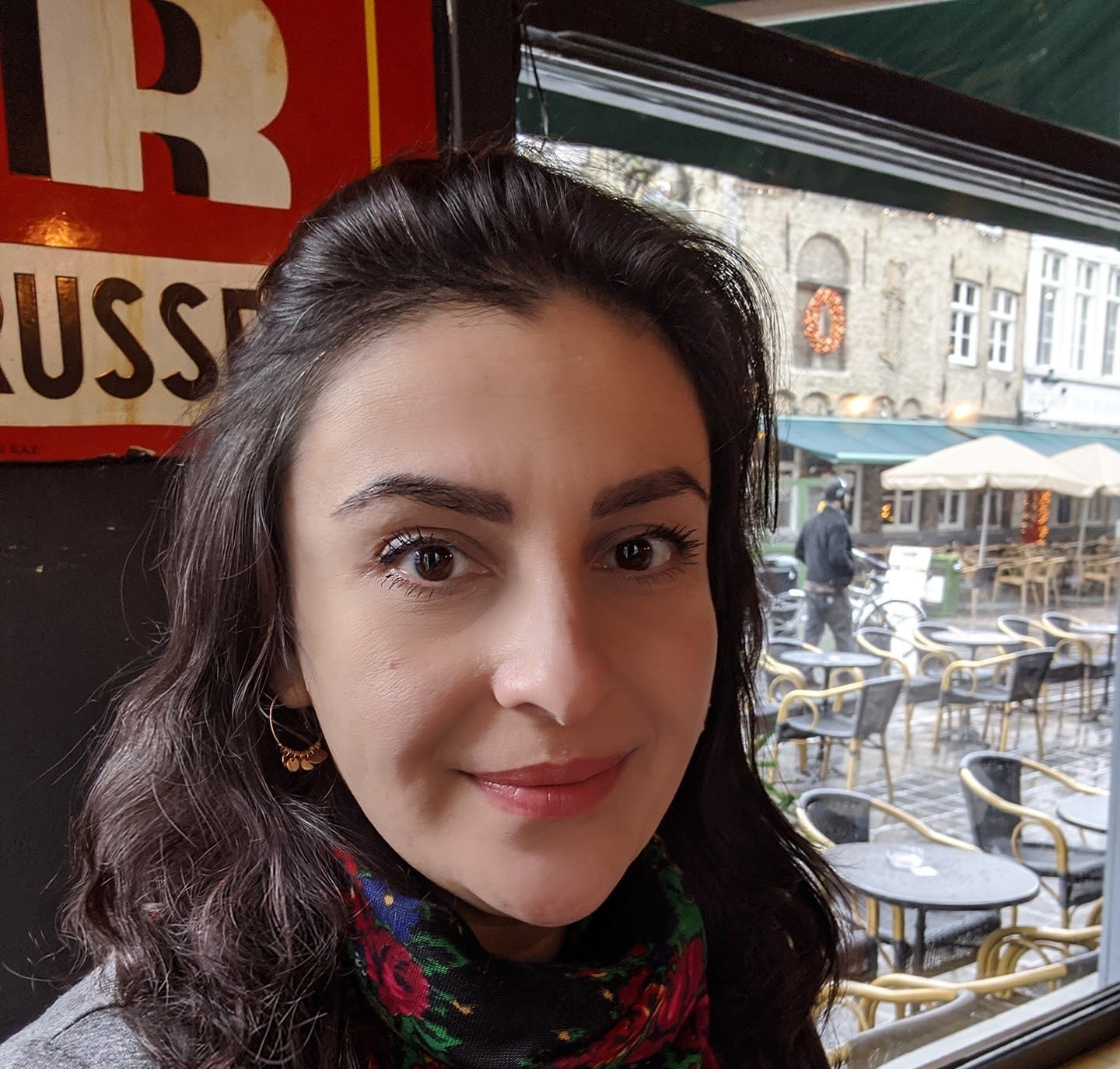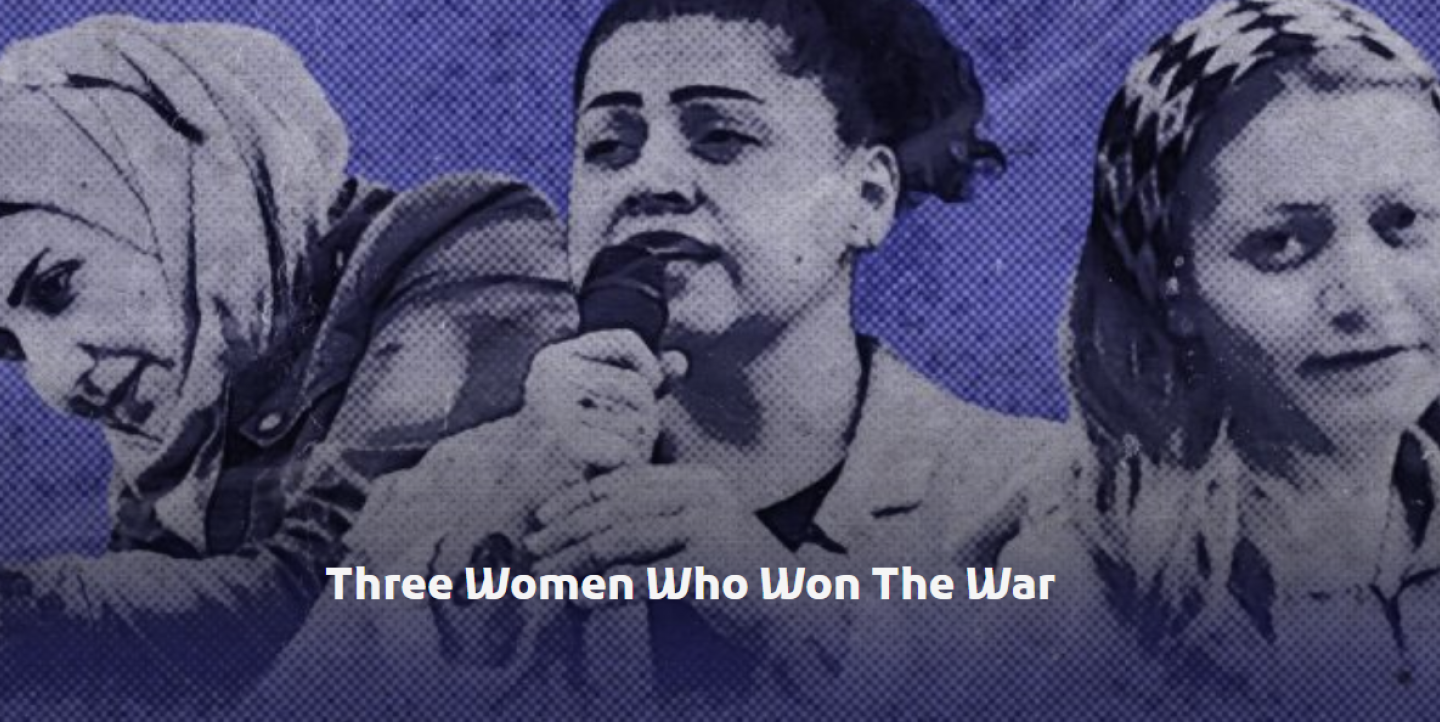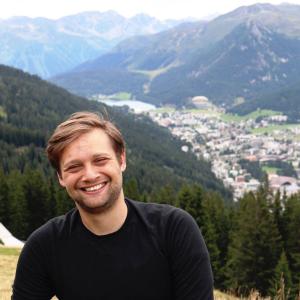The Syrian Civil War has claimed the lives of more than 500,000 people since protests against the government during the Arab Spring ignited into conflict in 2011. Nearly 7 million Syrians have fled abroad in a mass exodus, and an equivalent number have been displaced inside the country – in total, over half of Syria’s pre-war population.
The war has since faded from global attention but Syrian journalists continue to report on it today, while bearing witness to the crimes committed in what has been one of the 21st century’s deadliest conflicts.
Mais Katt, a freelance investigative reporter from Syria now based in the Netherlands, has covered the war for over 10 years. As an inaugural ICFJ Jim Hoge Reporting Fellow, she wrote about the lives of three Syrian women journalists who have reported on the civil war.
The story she published inspired her to launch a new outlet, Women Who Won the War, dedicated to creating space for women to tell their stories outside of the traditional lenses of wives, mothers and victims. It also offers support, training and guidance to female journalists operating in conflict zones, with a particular focus on the Middle East and North Africa.
I spoke to Katt about Women Who Won the War, the future she sees for journalism in the Middle East, and more:
Tell us about Women Who Won the War. Where did the idea for this project come from?
Katt: [The idea started with] this fellowship. It was granted by Jim Hoge, an American journalist, who was always trying to open doors for his younger colleagues. What I applied for was a story called Three Women Who Won the War. The story focused on three Syrian women, who had different lives during the Syrian war. They participated in the revolution in different ways.
I wanted to tell their personal stories to tell the narrative of the Syrian Revolution and the Syrian War from the perspective of women who are inspiring, who are changemakers, who can make the world a better place – and not only in the way that we hear in the Middle East and North Africa [with] women as victim or survivors, or as the wives or the widows of the heroes.
Who are the women you profiled for the story?
The first woman is Lubna Kanawati. She is a Syrian feminist, and a chemical attack survivor. She left Damascus to the area controlled by the opposition, then fled to the north of Syria and then to Turkey, and then from Turkey to France.
[In France] she co-founded an organization called Women Now for Development, a civil society organization that focuses on women. She's this very beautiful combination between softness, being feminine, and at the same time is very strong, which is really beautiful because most of the time as women [journalists] we adopt men's behavior.
Another one is Haneen al-Sayyed. She is a younger journalist who lives in the north of Syria, in an area controlled by extremists. She was displaced many times and ended up in Afrin, an area where all the Kurdish people had to flee [out of]. She is a freelance journalist, who had to stop her studies at the university because of the war, but she has continued [reporting].
The third one is Razan Zaitouneh. She's a lawyer, and she also grew up in Damascus. Actually, I studied [at the same university] with her. She was kidnapped by the [Syrian Islamist rebel group] Islam Army [also known as Jaysh al-Islam] in 2013 with her three friends, and she never came back. We don't know if she is alive or not. But she won her own war. She also witnessed the chemical attacks, and she documented the chemical attacks to the United Nations when [they] happened.

When you say Zaitouneh “won her own war,” in Syria, the physical war on the battlefield has not been won. Can you go a little bit more on what you mean by winning the war here?
If you [start] the war yourself, you see winning the war as winning the war physically, with the meaning of taking land or taking a [political] position.
But if you didn't choose the war, you can also win your war in your own way – by making wartime a better time for people, by helping and supporting and inspiring, and also changing the paths of other people. This is why I called it “winning the war.”
How did Women Who Won the War grow out of this story?
During the period when I was writing the story, Jim Hoge passed away. It made me think that I wanted this to be an ongoing project. I felt that there is so much to say, and also when I was looking for these three women, I found so many other amazing stories to tell.
I felt that it is very important to make it an ongoing project, which also really matched the vision of Jim Hoge himself. I found this connection between this idea and what I really want [to do] and the purpose of this fellowship. I'm looking [at this outlet as] a platform to tell more deep, longform stories, and focus on women in conflict areas covering not only the war in the [literal] meaning of the word, but also the social war, the challenges that any woman can face in society.
On the other hand, I noticed that we have a big gap with female journalists who do investigative journalism or deep journalism. In my region, women do feature stories. They do short stories, they focus more on social things, but not really on deep journalism. This is the other mission of this platform, providing training and capacity building and opportunities for young female journalists to produce stories with a deep impact.
Personally, it means a lot to be a part of changing perspectives and changing the narrative [around women in the Middle East]. To tell the real stories that are happening on the ground, because it's always the physical winners [of war] who are telling the stories and narratives of war, revolution and conflicts. It can be very, very personal just to tell our own narrative as women and talk about [war] from our perspective.
What do you see as the future of journalism in the Middle East?
When I look at journalism in the Middle East, it's very hard to be optimistic. [Journalism is a] part of democracy, so it's not only about the conflicts but also the dictatorships. It's also masculinity in this society. It's not easy at all – the path is full of big stones and rocks.
It's very hard to be optimistic, but also I really want to relay to people: don't give up. And that's why it's very important to keep doing the work ICFJ is doing by providing model journalism, capacity building, and supporting individuals and small independent organizations to build their own paths considering the principles that they believe in. That's what makes me more optimistic.
You were recently shortlisted for the 2024 European Press Prize. What does this mean to you?
As an immigrant journalist living in Europe, this nomination means a lot to me. I see this nomination [on a story for] addressing gaps in gender discrimination within the European migration system as a major boost to my work on women, migration issues and conflict zones, making me more committed to the Women Who Won the War project and more determined to pursue it further.
Photo courtesy of Mais Katt.
This interview has been edited for length and clarity.


